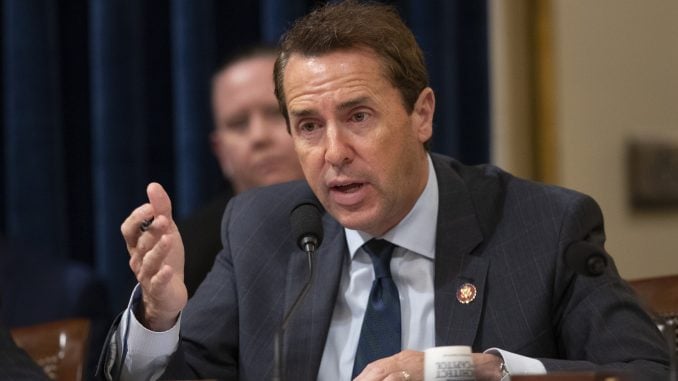
RALEIGH — U.S. Rep. Mark Walker announced late Monday he won’t run for anything in 2020 — making him the second North Carolina Republican congressman standing aside because of recent redistricting.
Walker’s decision comes as the political composition of his 6th Congressional District in central North Carolina shifted to the left last month, making it difficult for him to win. The state legislature redrew all 13 U.S. House districts after judges ruled it was likely the previous map was tainted with partisan bias favoring the GOP.
Rep. George Holding of Raleigh announced last week he wouldn’t run next year either, saying he didn’t see a way to win his redrawn 2nd District.
Walker had considered running instead against Republican Reps. Ted Budd and Patrick McHenry, who represent adjoining districts. A Walker spokesman said previously that Walker also looked at running statewide against U.S. Sen. Thom Tillis in the March primary, even though Tillis has the re-election endorsement of President Donald Trump.
Now Walker said he’ll consider a 2022 U.S. Senate bid for the seat that will be vacated by retiring Republican Richard Burr.
“I believe the best way we can continue to serve the people of North Carolina is as a United States senator,” Walker said in a news release. “As I have always sought to have serving people supersede our ambition, I will dedicate my full heart and efforts to finishing my term in Congress.”
Walker spokesman Jack Minor said in a brief interview Monday night that Walker wasn’t announcing his Senate candidacy. Minor confirmed a published report earlier this month in which Trump told Walker that he would back a 2022 Senate run.
“After we have secured more conservative policy and Republican electoral victories for North Carolina, we will take a look at the 2022 Senate race and we are thankful to have President Trump’s support,” Walker said.
Walker had until Friday — when candidate filing ends — to make a decision on a 2020 race.
Republicans currently hold 10 of North Carolina’s 13 congressional seats, but members of both parties say the remap would likely result in an 8-5 split, with Democrats picking up the Walker and Holding seats.
Walker didn’t mention the redistricting changes in his announcement, but he’s pointed out recently that six of the eight central North Carolina counties he’s now representing in the 6th District now are included in Budd’s redrawn district. The redrawn 6th is much more urban, comprising all of Greensboro and most of Winston-Salem.
Walker, a Baptist minister from Greensboro, was elected in 2014 and succeeded Rep. Howard Coble, whose 30 years in Congress made him the longest-serving Republican House member in North Carolina history,
Walker, 50, had already looked closely several months ago at challenging Tillis, who isn’t a favorite among some in the state’s conservative base. But he ultimately decided in June not to get in, and two weeks later Trump endorsed Tillis for re-election. Many Republicans didn’t want a nasty Senate primary that could weaken the nominee financially entering the general election.
Walker tweeted last week that he had lunch with Trump and Vice President Mike Pence.
Burr has said this term would be his last in the Senate.


